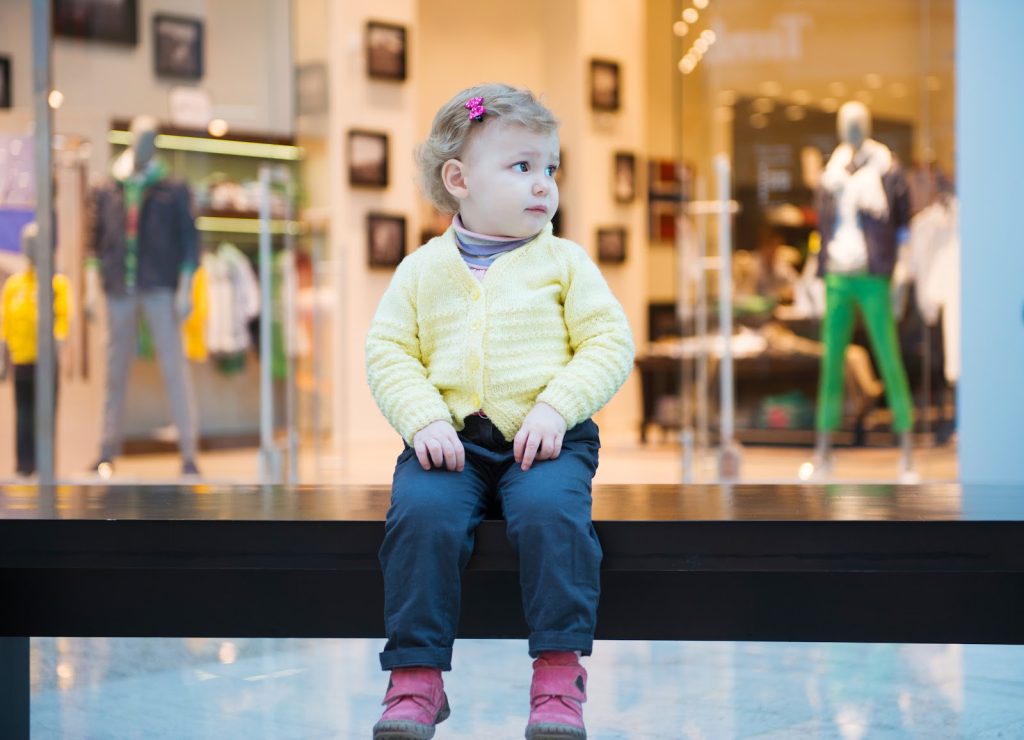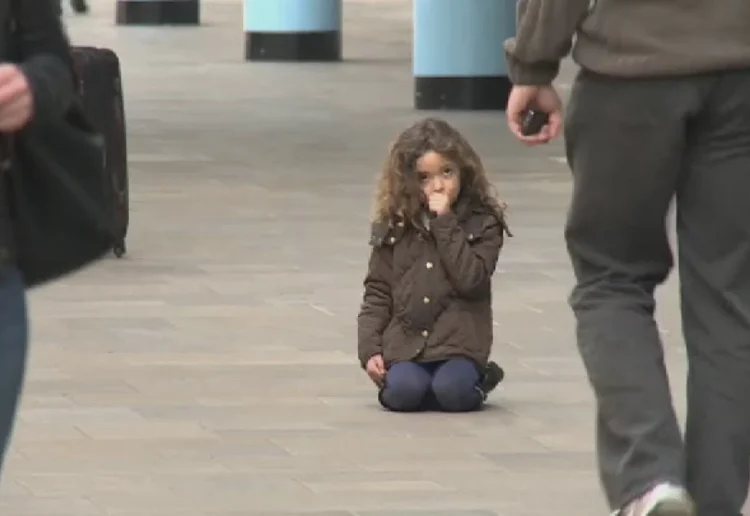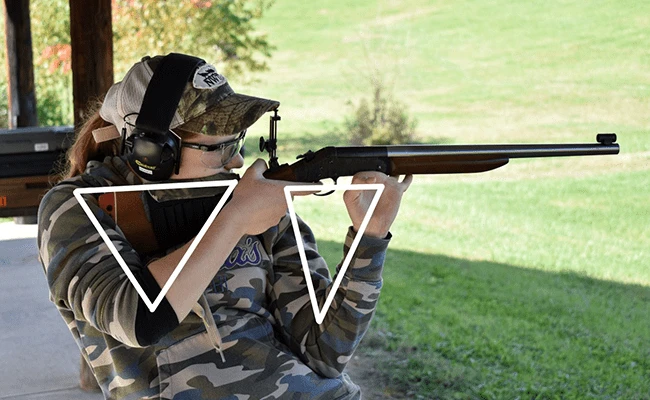If you find a lost child, the first and most crucial step is ensuring their safety and staying calm. Approach the child gently and reassure them. Stay with the child and do not leave them alone.
However, if you can’t locate the child’s parents or guardians promptly, call the local authorities or emergency services. Gather information from the child, and check for any identification they might have. Inform the authorities with the gathered information, and continue to stay with the child until their parents or guardians arrive.
In addition, do not take the child home or care for them independently. Always prioritize the child’s safety and well-being and act responsibly in this critical situation.
How to ensure a lost child’s safety?

The immediate actions when you find a lost child involve ensuring their safety by removing any potential dangers, staying calm and comforting the child. However, approaching them gently to establish trust, and never leaving the child unattended.
Ensuring the child’s safety
This is the primary and most critical step. Before anything else, you need to ensure the child is not in any immediate danger. Look around for any potential hazards, such as traffic, strangers, or unsafe locations, and take steps to remove or mitigate these dangers. For example, if the child is near a busy road, move them to a safer location.
Staying calm and reassuring the child
Remaining calm is essential because a lost child is likely to be scared, confused, and anxious. Your demeanor can have a significant impact on the child’s emotional state.
In addition, speak to the child in a gentle and reassuring tone to comfort them and reduce their anxiety. Let them know that you are there to help and that everything will be okay.
Approaching the child gently
Approach the child slowly and gently, so you don’t startle them. Extend your hand as a friendly gesture and introduce yourself.
Use their name if they tell you or use a friendly, non-threatening tone to ask for their name. Avoid sudden movements or loud noises that might make the child more frightened.
Avoiding leaving the child alone
Under no circumstances should you leave the lost child alone. Even if you need to go a short distance to make a phone call or seek assistance, ask the child to stay in a safe place, and assure them that you’ll be right back.
Furthermore, leaving a lost child alone can put them at further risk and increase their distress. It’s crucial to maintain constant supervision until the child is reunited with their parents, guardians, or authorities.
How to call for help when finding a lost child?
When contacting authorities after finding a lost child, you should promptly call local emergency services, and provide a detailed description of the situation.
Calling local authorities or emergency services
When you encounter a lost child and ensure their immediate safety, the next crucial step is to contact the relevant authorities or emergency services. In the United States, this typically involves dialing 911.
However, if you are in another country, be aware of the local emergency number. It is essential to involve the authorities as they have the necessary resources, training, and protocols for handling such situations.
When you call, stay on the line and clearly communicate the situation. Provide your location and any landmarks that can help them find you quickly. Inform them that you have found a lost child and require assistance.
Providing a detailed description of the situation
When speaking with the authorities, it’s essential to offer a detailed description of the situation. This includes explaining how you came across the lost child, the condition they are in, and any potential dangers or hazards in the vicinity. Be as clear and concise as possible to help the authorities understand the urgency and nature of the situation.
However, if you’ve assessed any immediate risks or threats, such as traffic, weather conditions, or health concerns, relay these to the authorities. The more information you provide, the better they can respond.
Sharing the child’s information with the authorities
One of the most critical pieces of information you can provide is the child’s details. Share the child’s name, age, and any other relevant information they provided to you. This information can be vital in reuniting the child with their family.
However, if the child has any form of identification, such as a school ID, a medical bracelet, or contact information written on their belongings, relay this to the authorities. These details can help verify the child’s identity and contact their parents or guardians more efficiently.
In addition, cooperation and clear communication with the authorities are essential. Follow their instructions and answer any questions they may have. Remember that they are there to help ensure the child’s safety and well-being.
How to get the child’s name and age?
When gathering information after finding a lost child, focus on obtaining the child’s name and age, collecting any details they can provide about their parents or guardians, and checking for any forms of identification.
Obtaining the child’s name and age
The child’s name and age are crucial pieces of information that can help in locating their parents or guardians more quickly. Approach the child gently and ask for their name. Knowing their age will also assist in verifying their identity and age-appropriate care.
Moreover, it’s essential to do this in a friendly and reassuring manner, as the child may be anxious or frightened. If the child is too young to provide their name or age, try to comfort them and ensure they feel safe.
Collecting any details the child can provide about their parents or guardians
While interacting with the child, try to collect any information they can provide about their parents or guardians. Ask if they know their parents’ names, phone numbers, or any specific details about where they were before becoming lost.
Additionally, be patient and understanding, as the child may be distressed and might not remember everything immediately. The more information you can gather from the child, the more helpful it will be for authorities and for reuniting the child with their family.
Checking for any forms of identification
It’s important to check if the child has any form of identification on them. This could include a school ID, a medical bracelet, or even a name tag on their clothing. Such items can provide valuable information about the child’s identity and contact information for their parents or guardians.
However, if you find any identification, make sure to share this information with the authorities when you contact them. It can expedite the process of locating the child’s family.
How to keep a lost child calm while waiting?

When waiting for assistance after finding a lost child, it is imperative to stay with the child until parents, guardians, or authorities arrive. Your presence provides comfort, security, and critical information.
Staying with the child until parents, guardians, or authorities arrive
Once you have ensured the child’s safety, contacted the authorities, and gathered essential information, it’s crucial to remain with the child. Do not leave them alone under any circumstances. Your presence provides a sense of security and comfort for the child in a situation that can be extremely distressing for them.
Staying with the child serves multiple purposes. It helps ensure their well-being and prevents them from getting lost again or encountering further dangers. Moreover, your presence can facilitate a smoother reunion with their parents or guardians, as you can provide valuable information about the child’s condition and location.
However, if the child is very young and cannot communicate their needs or name, stay with them and try to engage them in soothing and distracting activities, such as playing games or offering snacks (if you have any). This can help keep them calm and distracted while awaiting assistance.
Continuing to reassure and keep the child calm
A lost child is likely to be frightened, anxious, and in need of reassurance. While waiting for parents, guardians, or authorities to arrive, it’s essential to maintain a calm and reassuring presence. Speak to the child in a gentle and comforting tone, and offer words of reassurance to alleviate their distress.
Use age-appropriate language and engage in activities or conversation that can help keep the child calm and distracted from their anxiety. You can ask them about their favorite toys or hobbies, or share a simple story or game with them.
Be patient and empathetic, as the child may experience a range of emotions, including fear, confusion, and even anger. Your understanding and support can make a significant difference in how they perceive the situation.
FAQ’s
What questions to ask a lost child?
When approaching a lost child, ask them gentle, non-invasive questions like “What’s your name?” and “Do you know your parents’ names or phone numbers?”
How many children go missing in the UK every year?
The number of missing children in the UK can vary from year to year, but on average, it’s several thousand. For the most recent and accurate statistics, it’s best to refer to official sources like the UK government or law enforcement agencies.
What to do for a neighbor who lost a child?
In such a heartbreaking situation, offer emotional support, practical help, and a listening ear. Help with daily tasks and be there for them during this difficult time.
What does losing a child do to a parent?
The loss of a child can cause profound grief, emotional distress, and long-lasting trauma for parents. It can impact their mental and physical health, relationships, and overall well-being.
What are the 3 C’s that concern children when they are losing a loved one?
The 3 C’s often associated with children coping with loss are Communication, Consistency, and Comfort. They need open communication, a consistent routine, and comforting reassurance during such difficult times.
What does losing a mother do to a child?
Losing a mother can have a significant and long-lasting emotional impact on a child. It can lead to grief, and sadness, and potentially affect their emotional and psychological well-being. Support and counseling may be necessary to help them cope.
Final Words
In summary, if you ever come across a lost child, here’s what you can do to keep them safe and make sure they’re okay. First, check if they’re okay and talk to them calmly to make them feel better. Don’t go away and leave them alone.
Then, call the police or emergency services and tell them exactly what’s happening. Try to find out the child’s name, how old they are, and if they have any identification. While you’re waiting for help, stay with the child and keep telling them everything will be okay because they might be scared.
In addition, your help is really important in this kind of situation, and it’s best to work together with the police and the child’s family to make sure everything ends well. Remember, what you do can help the lost child get back to their family safely.











